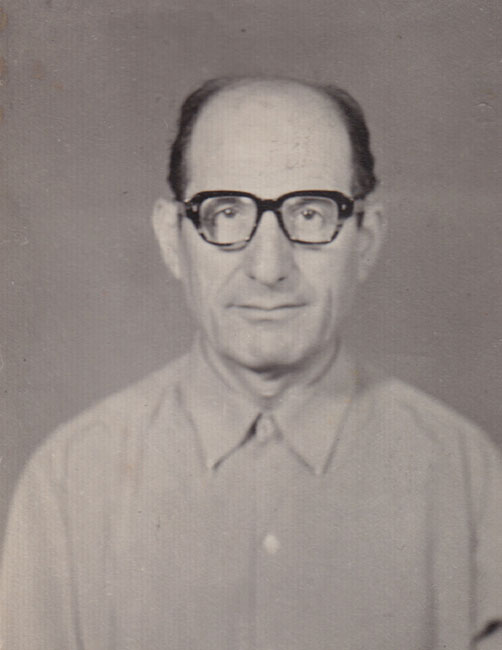Khanan (Khanania) Babaev was born in 1921 in Samarkand into a Bukharan-Jewish family. When he was three years old, his family moved to Kokand. His father worked for the OGPU (the KGB of that time). His mother was a member of the Communist Party as well. They sent all five of their children to be educated in a Jewish children's home, which Khanan attended until the fifth grade. In 1939 he graduated from the Tashkent Technical School of Physical Culture and Sports and then worked in this field as a teacher in an Uzbek-language school. In May 1941 he was drafted into the Red Army.
He was wounded during the first months of the Soviet-German war and was treated in a hospital. Afterwards he was sent to a three-month military course and then became the commander of a T-34 tank crew. At that time, for mining a bridge, he was awarded the Order of Glory, 3rd class, which he actually received only after the war ended.
During fighting in the Smolensk region in 1943 Babaev's tank was hit. The crew abandoned it and took part in the fighting as infantrymen. A shell exploded near Khanan and a fragment shattered his hip. Medics removed him from the battlefield and sent him to hospital. After treatment he was invalided out of service in the same year. He returned to Uzbekistan, where he settled in Tashkent. He worked there in an airplane factory. In his interview given in 2010 to The Blavatnik Archive Foundation (Number in archive NY054) he emphasized that when he served in the Red Army he never suffered from antisemitism or heard any anti-Jewish remarks. Only after war did he hear antisemitic accusations about Jews avoiding combat. In 1968 Khanan Babaev was awarded the Order of Glory, 3rd class.
After the breakup of the Soviet Union he immigrated to the United States, where he lived in New York.
Three of his brothers were killed at the front. The fourth, Zakhar, was captured. He saved his life by posing as an Uzbek so the Nazis did not realize that he was a Jew.







